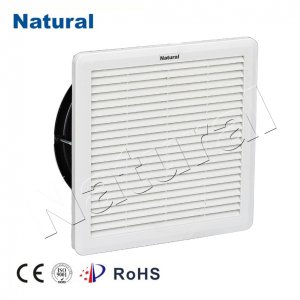Indoor air quality (IAQ) is a crucial aspect of our living environments that often goes overlooked. The air we breathe indoors can have a significant impact on our health and overall well-being. In recent times, the importance of maintaining clean and fresh indoor air has led to the development and widespread use of air filter ventilation systems. These systems play a vital role in enhancing IAQ by effectively removing pollutants and contaminants from the air we breathe.

Air filter ventilation systems are designed to work in tandem with HVAC (heating, ventilation, and air conditioning) systems. They are equipped with advanced filtration mechanisms that capture a wide range of airborne particles, including dust, pollen, pet dander, mold spores, and even bacteria. This filtration process helps reduce allergens and irritants, making the indoor environment more comfortable, especially for those with allergies or respiratory issues. One of the key benefits of air filter ventilation systems is their ability to mitigate the presence of fine particulate matter. These tiny particles, often smaller than 2.5 micrometers, can easily enter our lungs and even bloodstream, leading to various health problems. Airborne pollutants like PM2.5 are a result of outdoor air pollution, but they can infiltrate indoor spaces as well. Air filter ventilation systems with HEPA (High Efficiency Particulate Air) filters are particularly effective in capturing such particles, ensuring that the indoor air remains free from these harmful substances. Volatile Organic Compounds (VOCs) are another concern for indoor air quality. These chemicals are emitted from various household products such as paints, cleaning agents, and furniture. Prolonged exposure to VOCs can lead to headaches, nausea, and even more severe health issues. Air filter ventilation systems equipped with activated carbon filters can adsorb VOC molecules, thus minimizing their concentration in indoor air. This is a significant step toward creating a healthier and safer living environment. Air filter ventilation systems are not only beneficial for residential spaces but also for commercial buildings and healthcare facilities. In places where the concentration of people is high, such as offices and hospitals, the potential for airborne transmission of diseases increases. High-quality ventilation systems with proper filtration can play a pivotal role in reducing the risk of infectious diseases by ensuring that the air is consistently exchanged and purified. Furthermore, air filter ventilation systems contribute to energy efficiency. While there is a common misconception that improving indoor air quality leads to higher energy consumption, modern systems are designed to balance both factors. By incorporating smart technologies that regulate the air exchange rate and adjust filtration levels based on real-time air quality monitoring, these systems can optimize performance while conserving energy. In conclusion, air filter ventilation systems have become integral to maintaining a healthy indoor environment. From reducing allergens and fine particulate matter to combating VOCs and enhancing energy efficiency, these systems offer a holistic approach to improving indoor air quality. As our awareness of the importance of IAQ continues to grow, the adoption of air filter ventilation systems is likely to become even more widespread. By investing in such systems, we invest in our health, comfort, and overall quality of life.